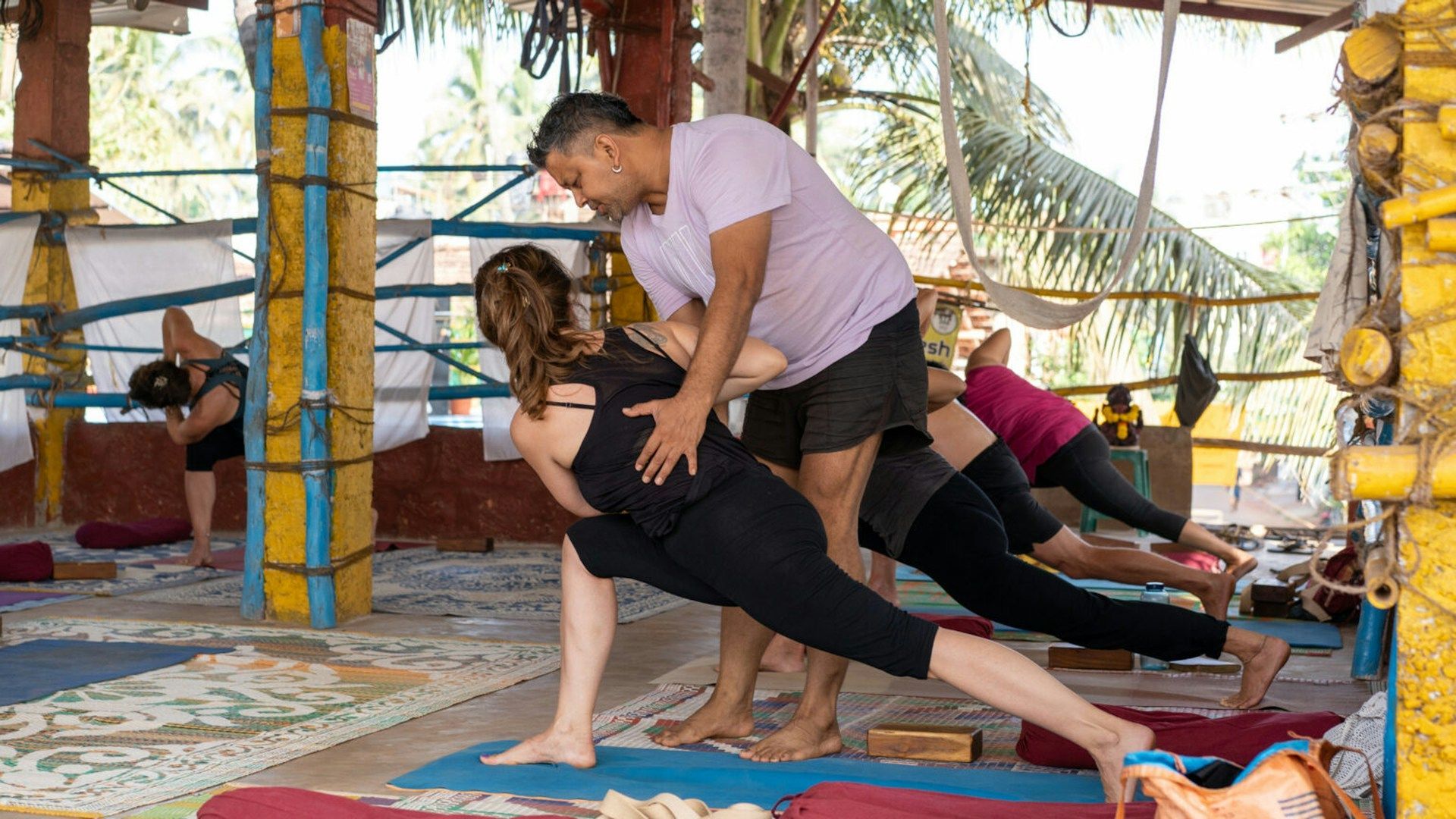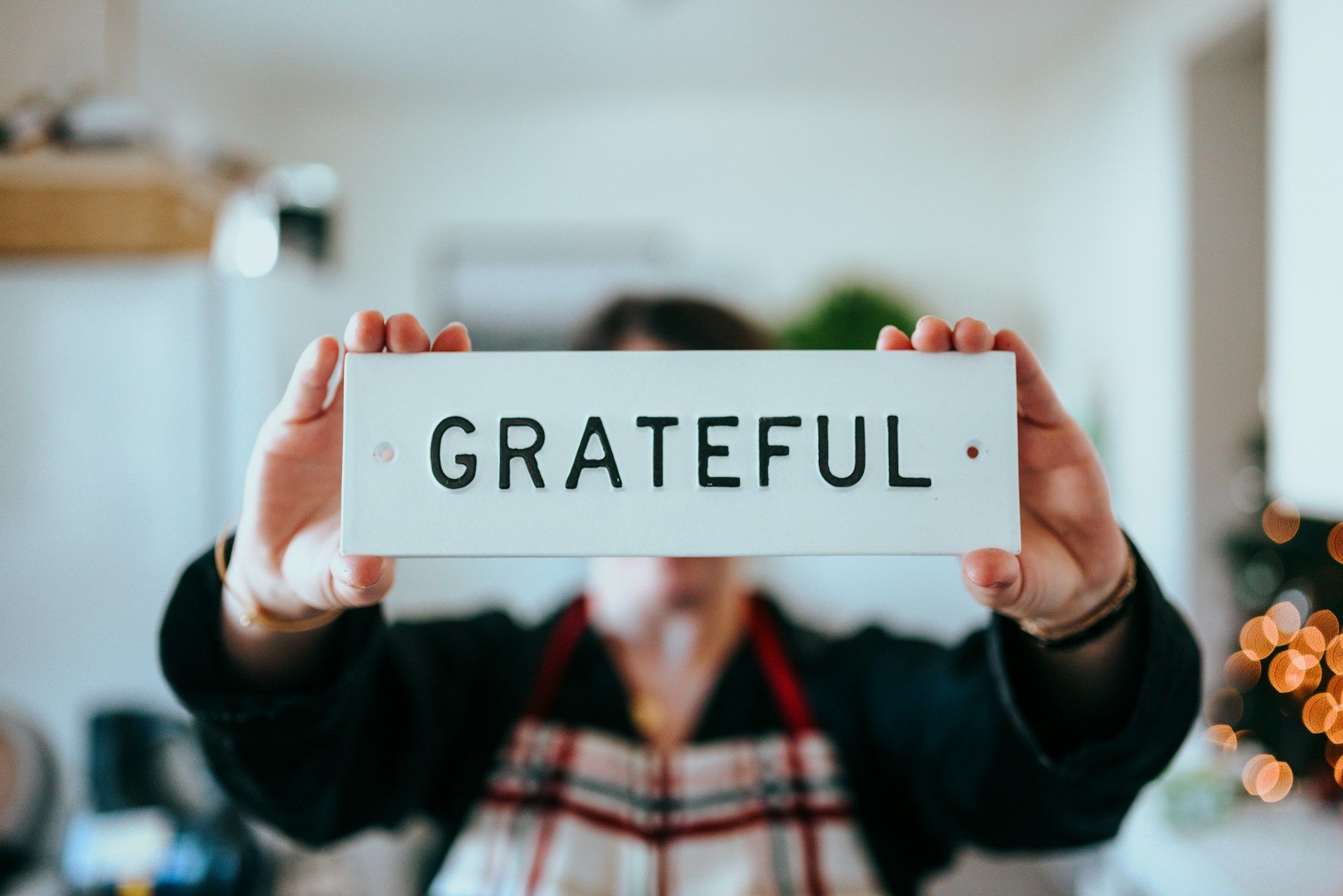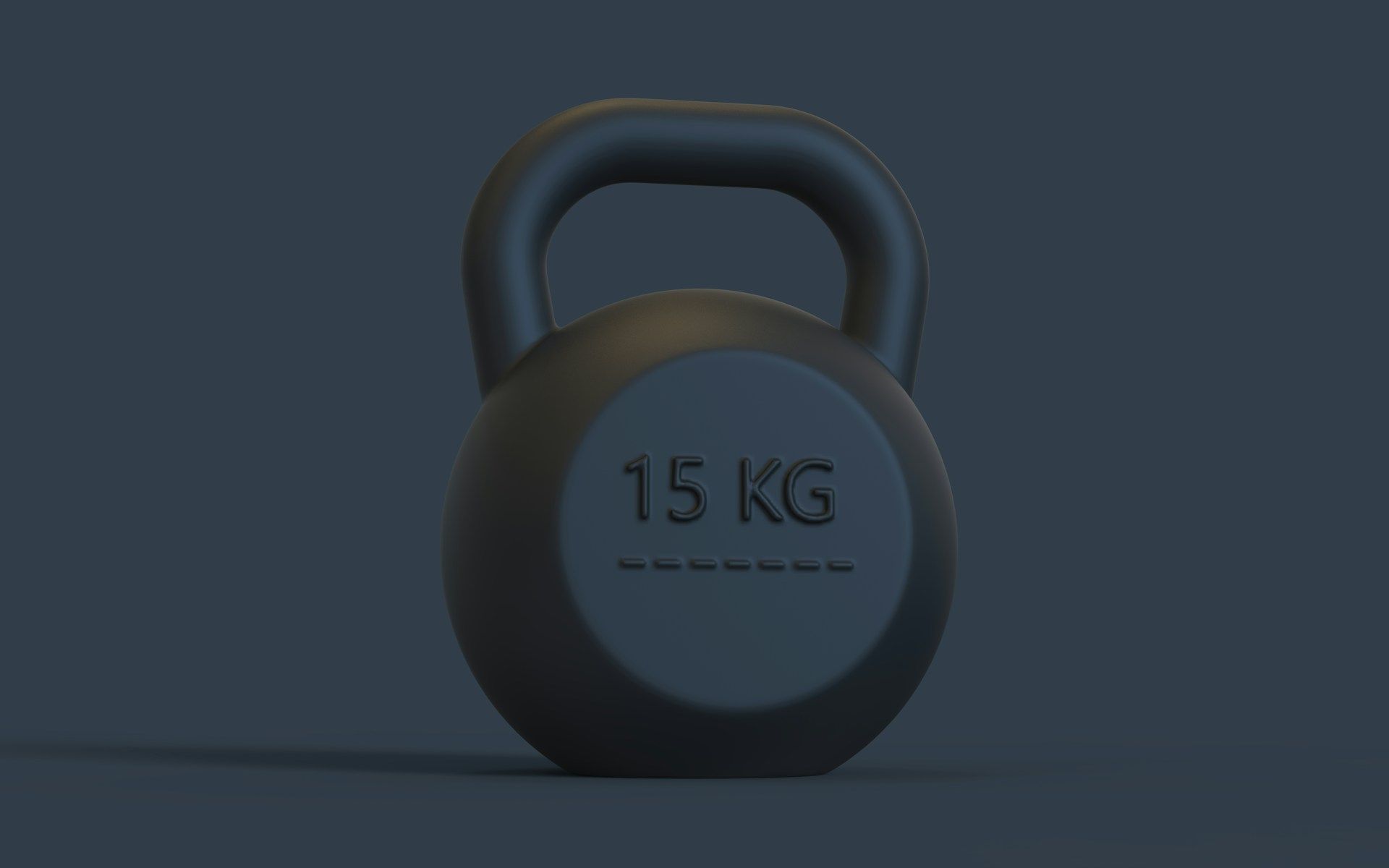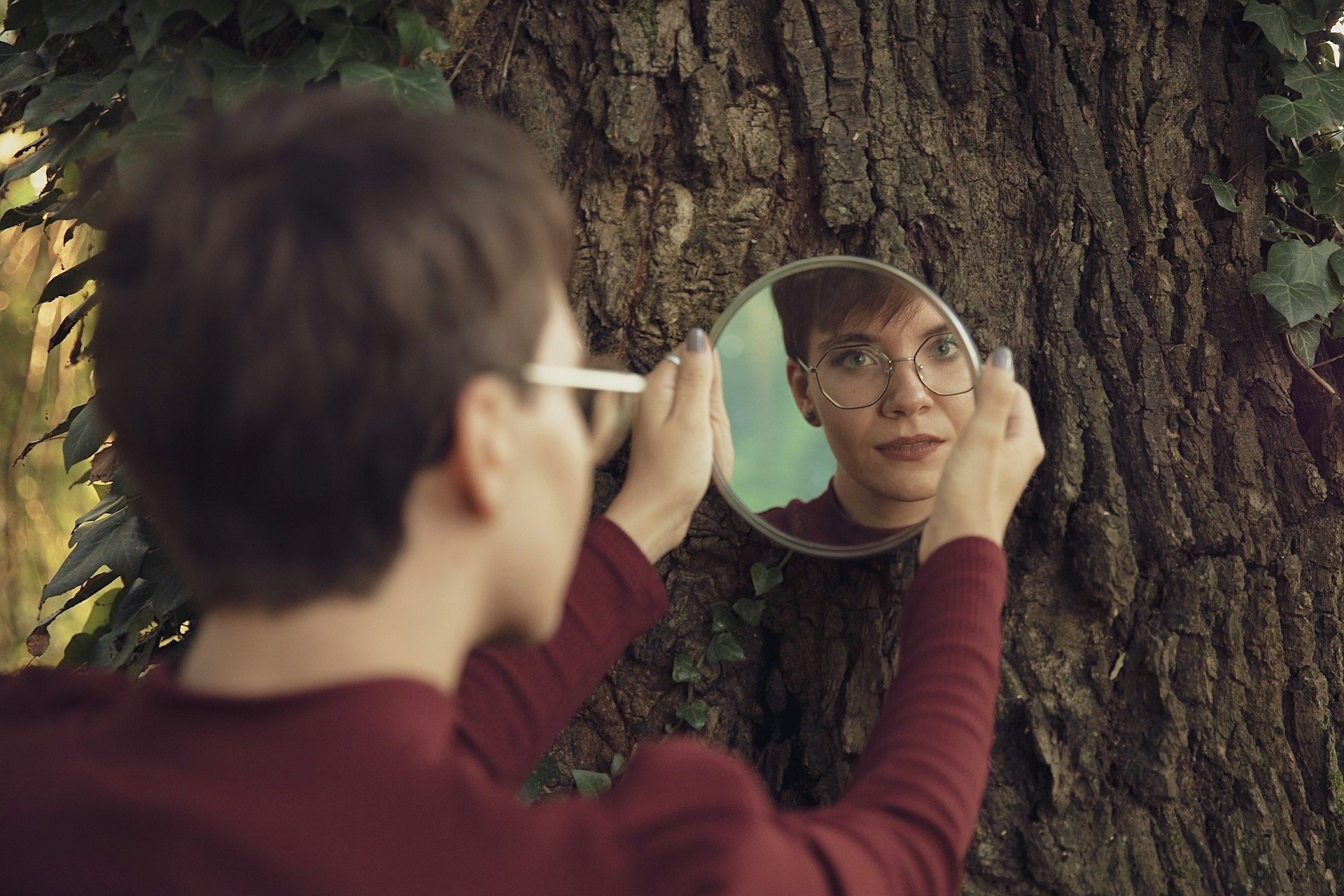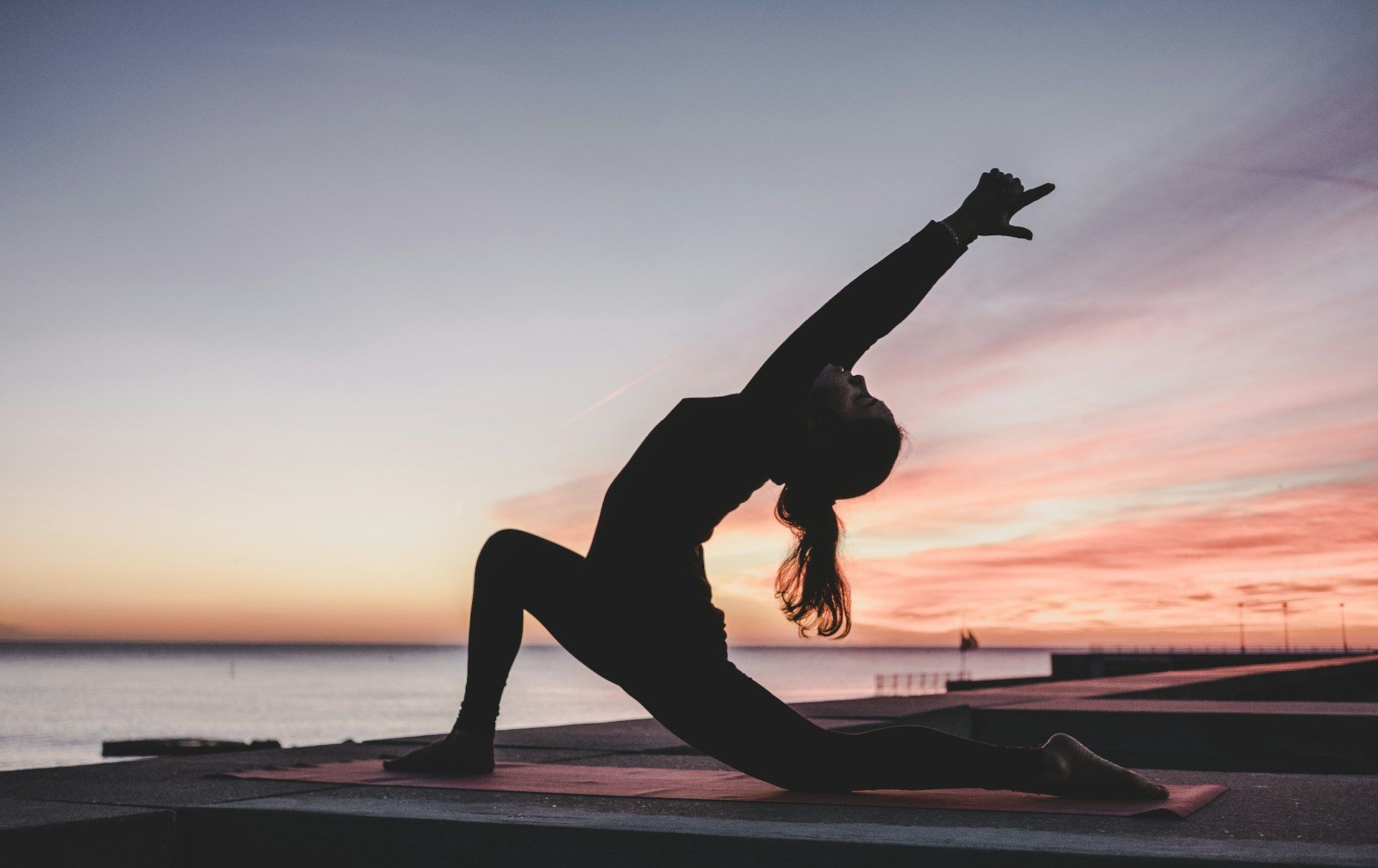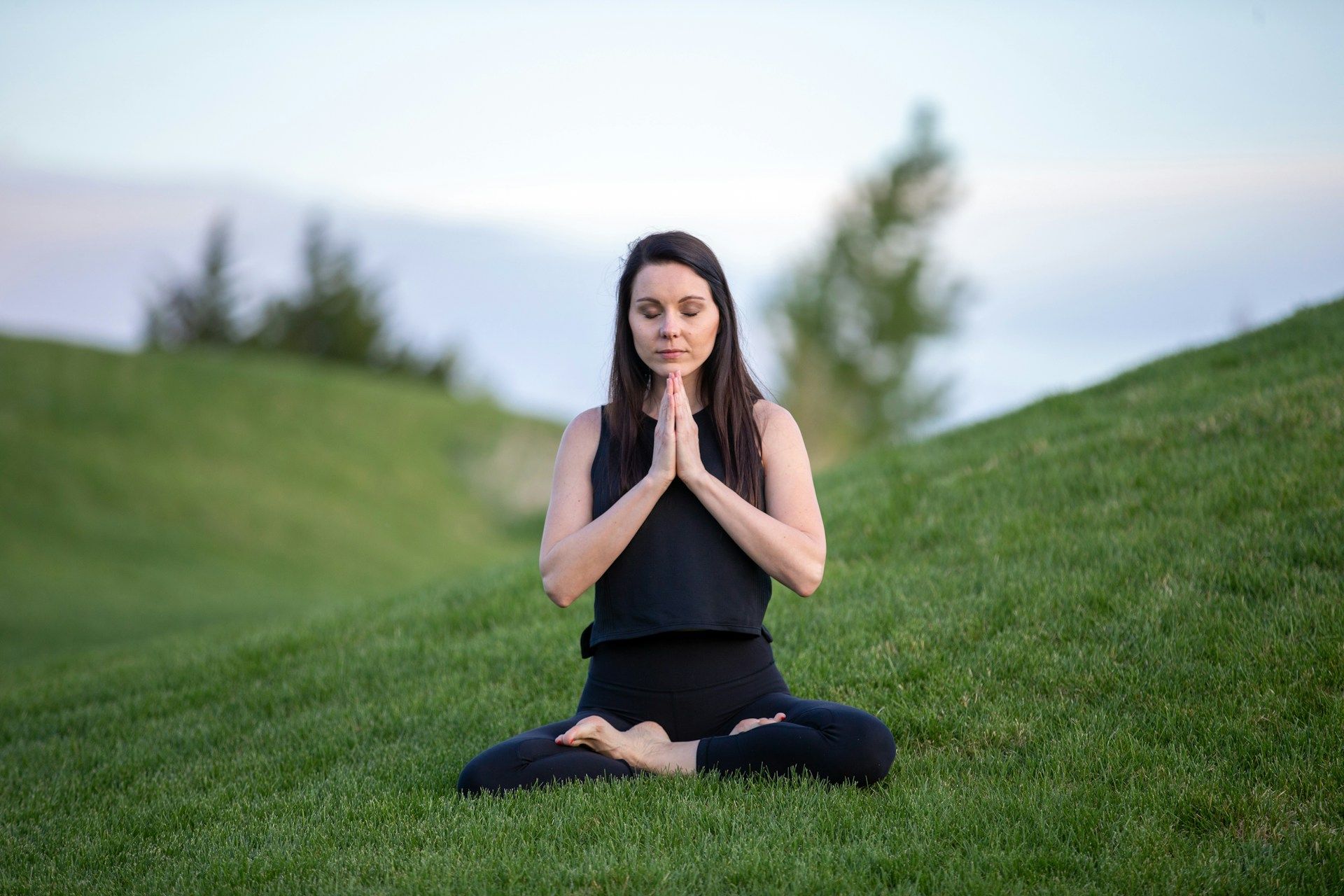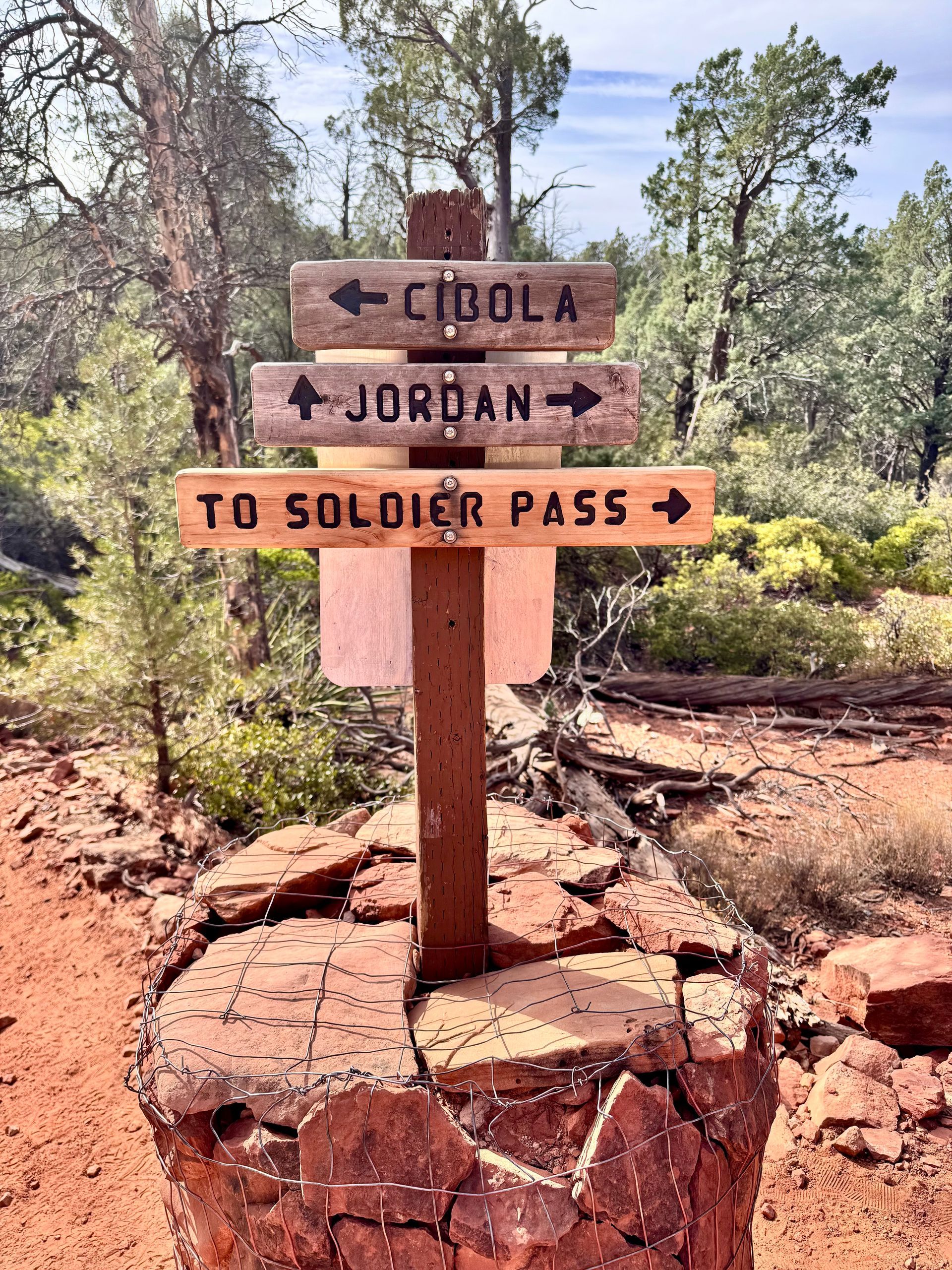You Can’t Control the World: Developing a Locus of Control on the Mat
How do you develop "the wisdom to know the difference" the Serenity Prayer speaks of?
According to psychologists, developing an internal locus of control benefits your mental health. However, the idea that you are in charge butts heads, sometimes violently, with reality. The truth is that none of us controls the world, but we are all a part of it, with varying degrees of influence.
Resolving this seeming contradiction — what we do with our energy, how we use our influence, limited as it may be by the world’s other realities — is some of the toughest work we do on the mat. It pushes the notion of “union” in yoga to the nth degree, challenging us to meditate on this seeming nonduality. Where do “we” end and the rest of the universe begin? Who are “we,” anyway? Furthermore, where is the line between accepting the things we cannot change and finding the courage to act on those we can?
The Only in Sedona Yoga crew can’t pretend to have all the answers. However, we can share what we’ve learned from talking to the mat. Here are insights into how to use your practice to develop a healthy locus of control and improve your mood and mindset.
What Is a Locus of Control, Anyway?
According to the American Psychological Association, your locus of control refers to your perception of the degree of control you exercise over the conditions of your life. People with an external locus of control view their life outcomes as arising from circumstances beyond their control. They’re prone to reactivity and can end up feeling disconnected, floating in the wind like that plastic bag in the Katy Perry tune.
Those with an internal locus of control, conversely, perceive their life outcomes as arising from their actions, abilities, and choices. Research suggests that those with an internal focus of control
are happier and even enjoy better
physical health on average.
Having an external locus of control can lead to seriously problematic behaviors. Perhaps the most egregious is ascribing everything in your life to forces beyond your control means looking outside of yourself for something or someone to blame when things go south. Constantly pointing fingers can shatter otherwise supportive relationships. It can also prevent you from seeing the answer to your woes when what you need is to take a long, hard look in the mirror.
Searching for someone or something to blame wastes valuable energy, energy you could often better use seeking solutions. While blaming others is a convenient way to absolve yourself, it also prevents you from ever making the necessary changes to improve your life. If everything is someone else’s fault, then how can you possibly fix it? Pointing fingers brings temporary, superficial relief, but also denies your ability to be an active agent of change. Deep down, part of you sees through this self-delusion. The maladaptive belief that there is nothing you can do leads to a depression that eats at you like a self-swallowing snake. In an attempt to escape these negative feelings, you may turn to drugs and alcohol, which inevitably make any problem worse.
Hello? Lovely Theory, Locus of Control, but Reality, Anyone?
Here’s where my autistic little brain used to always kick up dickens. Like many autistic people, I am extremely prone to black-and-white thinking, a revelation exposed by the mat (of course). When I began my Only in Sedona Yoga journey, I had an extreme external locus of control. I was poor, I did live in the one wealthy nation on earth that doesn’t provide basic healthcare for all citizens, I had spent every dime I had ever had trying to get to the bottom of symptoms that seemingly had no answers. I had worked hard, I had tried my best, and yet, my life was still falling apart.
I got so hung up on the dichotomy — if all the above things were true, then how could I be in any way responsible for the mess my life had become? — that I gave away my power to change what I could. I cast myself into the role of helpless victim, where I remained trapped. That is, until a simple Spanish phrase entered my mind one day while talking to the mat:
Por que no los dos?
The reality is that all of us, every single human being on this planet, from those with great influence to those who lack two cents to rub together, face circumstances beyond our control. None of us really knows how life got here, what happens when we are gone, or the true nature of the universe. Trying to figure out the truth of everything is akin to the three blind men
describing an elephant by touching only a small part. The one touching the ear describes it as a hand fan, while the one who feels the tail says an elephant must be like a rope.
We are not the whole; we cannot control the whole, but we are a part of the whole. We, as complex, thinking, mindful human beings, have control over
our
energy. We can, most likely to a larger degree than any other living creature, exercise considerable agency over our thoughts, our words, how we relate to others, and how we move through the larger world.
It took time, but I began to use my time on the mat to seriously examine what I could do differently. The process wasn’t easy, but it was transformative.
Factors That Influence Your Locus of Control
Unfortunately, the people who could benefit the most (like me) from developing a stronger internal locus of control are often those with the deck most stacked against them. Several factors can influence how your locus of control develops, and taking it back can be a bigger struggle if any of the following apply:
- You have a trauma history: Those who have experienced trauma often struggle with an external locus of control. After all, something outside of their control shook their world. It’s particularly acute among those who have experienced sexual trauma, as such individuals may no longer feel safe in their own bodies and lack confidence in external justice systems, and their concerns are often valid. Even experiencing vicarious trauma can nurture an external locus of control, and who among us can do much about the horrors we see on the news, like war, starvation, and the desecration of our planet?
- Genetics: Some researchers believe that genetic factors may influence your locus of control.
- Your upbringing: If your parents continually denied accountability and instead sought outside forces to blame, you’re more likely to unconsciously imitate their pattern, even if you don’t consciously start out with the thought, “It’s always somebody else’s fault.” Furthermore, those raised with overly controlling parents are more likely to exhibit an external locus of control. Their parents may have consciously or unconsciously reinforced the deep belief that nothing the child did would lead to their needs being met, leaving them with an internalized victim mindset.
I don’t know what my genetic profile says, but two of the three decidedly applied to me. I couldn’t change the past. My question then became, “Okay, but what can I realistically do right now to change my circumstances for the positive?” Fortunately, I was at rock bottom with nowhere to go but up. I didn’t intend to develop an internal locus of control of the mat, but it happened when I was willing to take a hard look at myself and the role I played in my problems.
The Serenity Prayer, Addiction, and Changing What You Can
Many people who have struggled with various addictions, like me, find solace in the Serenity Prayer:
God, grant me the serenity to accept what I cannot change
The courage to change what I can
And the wisdom to know the difference
Meditating on this simple prayer made the meaning of the phrase
por qué no los dos clear to me. Yes. There were forces outside of my control that had power over the events of my life. However, I
also
had an influence, one which I had willingly surrendered to despair and addiction. What would happen if I took that power back? How might things change? I decided to approach it as a scientific experiment.
As I repeat on the show and will do again here in the interest of full disclosure: I am
not a therapist, doctor, or researcher. I am a sick person fighting my way back to wellness, sharing what I have learned in my journey with the hope of helping others.
Since I didn’t know much about psychology, I decided to start with what I did know. Out went alcohol and at least ten prescription medications — I don’t even remember what all I was on anymore, but I had a drawer full. Instead, I white-knuckled sobriety solo. Instead of seeking chemical oblivion to manage my feelings, I spent hours
doing restorative yoga while listening to medical lectures from esteemed universities and mental health lectures from
licensed mental health practitioners on YouTube.
Coping With Difficult Realizations
I’m not going to lie — this process was soul-shattering. Watching professional therapists role-play certain toxic personality patterns confirmed that I had, indeed, been on the receiving end of some seriously messed-up stuff.
However, it also didn’t take me long to realize that I also displayed many of these maladaptive traits. With each long, tearful mat session, it became increasingly clear that I had also been toxic and was as capable of doing harm as those who had harmed me. How could I possibly blame anything outside of myself for having no support system when I was the one pushing would-be helpers away with my words and behavior?
I couldn’t.
Realizing the role you play in your life’s troubles can hurt. It can foster a deep depression, and you may wish to have therapeutic support throughout the process.
The only way out, though, is through. And here’s the truth: you cannot go back and undo your past. What you can do is avoid making the same mistakes by acting more intentionally and mindfully in the future. Doing so is a behavior you can train and improve with practice.
That, for me, was the beginning of developing my internal locus of control on the mat. Quiet introspection while soothing my nervous system was the beginning of the wisdom to know the difference for me. No, I couldn’t control everything, no one could, but by mindfully controlling my response instead of a knee-jerk reaction, I could influence my life’s trajectory.
The only way I have found to maintain this internal locus of control is through daily mindfulness practice. Fortunately, it also makes me look forward to my time on the mat. It’s the ultimate safe space to be alone with my thoughts, free from judgment and outside influences. Reflecting on what’s happening and the role I play in it can be painful, but also empowering.
Truth is, we all make mistakes, but we can all learn and grow from them, too.
Tips for Developing an Internal Locus of Control on the Mat
The following tips come straight from my personal experience. I hope they help you. If you have other advice that you find useful, please feel free to share it in the comments section of this article. Pass on your wisdom, too. Here’s what I find most helpful for tough mat sessions:
1. Get in the Right Headspace
I have a lot of nervous energy, especially when the going gets tough. It’s why I so often acted out maladaptively in the past. When I get highly stressed or emotional, it feels like I am a powder keg trying to cross a minefield of lit matches without exploding. As such, I used to do a full hour and a half of Ashtanga before sinking into a restorative yoga practice. You might also dispel that fight-or-flight juice by going for a run, hitting the weights hard, or even weeding the garden with a vengeance before hitting the mat. Anything that dispels stress hormones works.
2. Practice Detachment
As I often say on the show, you are not your thoughts and feelings, any more than you are your arm or your leg. Like the greater Universe surrounding us, these are all parts of your “whole,” but they are not the “whole” — remember the elephant story? However, we often assume what we think and feel must be real, be true, be us. Use your mat time to practice detachment.
What does that look like? What I sometimes do is imagine a little neutral scientist in my head. Their job is simply to observe, jotting down each thought or emotion without judgment before flipping to a new page in their little spiral notebook. The tricky part is avoiding rumination. That’s why turning the page is so crucial. Simply notice, then flip before you start to form a chain of thoughts or emotions. If an intrusive thought comes to mind, avoid giving it weight by turning to a new page.
3. Stay Open-Minded and Return to the Breath
Your mat is your safe space. No one is going to judge you for what’s going on silently in your head. If tears come, allow them. Simply observe, as you do every other thought and reaction.
However, if emotions threaten to overwhelm you, return to the breath. Don’t stuff uncomfortable thoughts and feelings back down, as repressing them only allows them to continue to influence you behind the scenes. Instead, shift your awareness to your inhales and exhales. In doing so, you teach yourself to sit with discomfort. Sitting quietly and breathing through the storm slowly loosens its grip on your psyche. The rain may still fall, but you learn it will not kill you.
4. Exercise Self-Compassion
Finally, be good to yourself. Doing this work on the mat is hard. It may be the toughest process you ever undergo. Therefore, treat yourself like you would a good friend.
Therapeutic support may not be as far away as you think. Numerous mental health apps today allow you to chat with a licensed practitioner. If difficult feelings come up, having someone you can speak with to help you process them helps many people, and a caring friend or family member can be every bit as good as a licensed professional.
Use your judgment. If you don’t have anyone — or even if you do! — plan something nice for yourself after each tough session of talking to the mat. Perhaps follow your practice with your favorite hot tea, a nice bath, or even escaping into your favorite television program.
5. Be Patient
Developing and maintaining your locus of control takes daily practice. You didn’t come by who you are today overnight, and you aren’t going to change yourself overnight. However, dedicating yourself to your work on the mat will give you a better sense of what you can’t change. More importantly, it teaches you what you can influence, which is often more than you think. A simple change in attitude can have ripple effects that improve multiple areas of your life. You also enjoy the true confidence that only comes with knowing you’re doing the best you can with what you have at the moment.
Developing a Locus of Control on the Mat
You can’t control the world. No one can. Everyone is a part of a greater, collective whole, the truth of which no one fully understands, no matter what they claim. We are all blind people struggling to define an unseen elephant.
However, discovering what you can control, what you can change, can transform your life. Assuming responsibility for what lies within your influence calms many a chaotic wind and can help you manage the gales with greater confidence and grace. Developing the wisdom to know the difference between what you can control and what you can’t is among the most important work you can do on the mat, and cementing a strong internal locus of control makes life’s inevitable hurricanes far less frightening.

